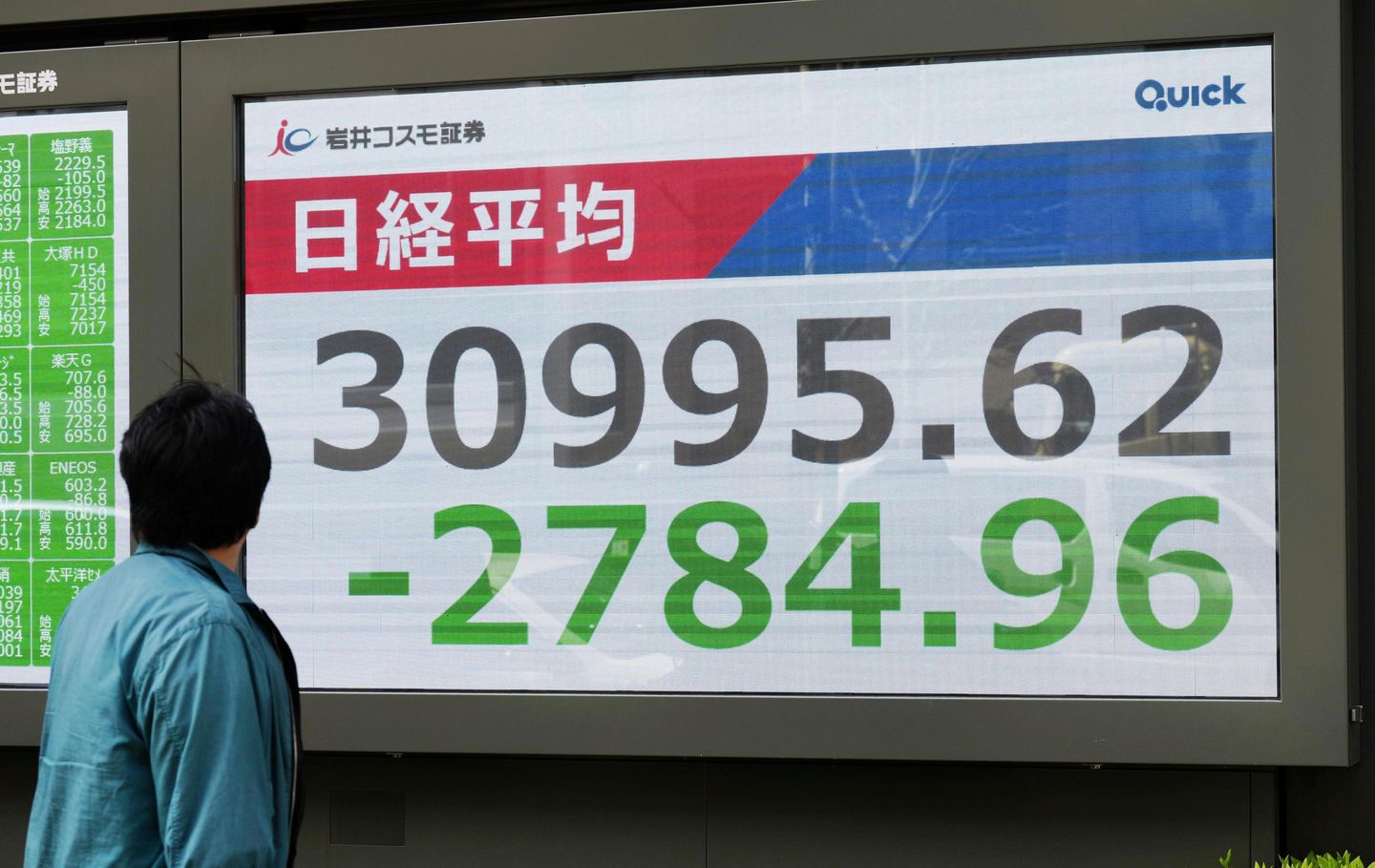
Global stock markets sank lower Monday because of the turbulence around President Trump’s tariff plan, as world leaders toggled between defying the White House’s actions and signaling they are willing to negotiate with the U.S.
Stocks in Japan fell by more than 7%, and the Stoxx Europe 600 opened in negative territory. India’s market dropped by more than 4%, signaling a widespread selloff, and China’s sovereign wealth arm took steps to backstop its markets amid the turmoil.
In the U.S., the Dow Jones Industrial Average opened down 1,200 points, or over 3%, and other major indexes were firmly in the red as the tariff selloff entered a third day.
Mr. Trump is touting his plan to impose a blanket 10% tariff on imports and higher levies on dozens of individual countries.
“We have massive Financial Deficits with China, the European Union, and many others. The only way this problem can be cured is with TARIFFS, which are now bringing Tens of Billions of Dollars into the U.S.A.” Mr. Trump posted late Sunday on Truth Social. “They are already in effect, and a beautiful thing to behold. The Surplus with these Countries has grown during the ‘Presidency’ of Sleepy Joe Biden. We are going to reverse it, and reverse it QUICKLY. Some day people will realize that Tariffs, for the United States of America, are a very beautiful thing!”
The White House’s tariff formula leaned heavily on large trade imbalances the U.S. has with those nations, enraging and confusing allies who said they thought Mr. Trump’s plan would be directly reciprocal to tariffs and other trade barriers that other nations impose.
SEE ALSO: Trump White House stands by tariffs in the face of global pushback
German Economy Minister Robert Habeck called the calculations “nonsense” and urged nations to “act clearly and decisively and prudently, which means realizing that we are in a strong position.”
“America is in a position of weakness,” Mr. Habeck said Monday.
Tariffs are a tax or duty paid by importers on the goods they bring in from foreign markets. Mr. Trump says tariffs are a great way to force companies to return to America or keep their operations in the U.S., employ American workers and create revenue to fund domestic programs.
Foreign countries don’t pay the tariffs directly to the U.S. Treasury. In many cases, U.S. companies will pay the levies, and they might pass on at least some of the cost to consumers through higher prices.
Democrats say the tariff plan will be a massive tax on everyday Americans, though some investors say Mr. Trump is attempting to get leverage over other nations or win concessions.
Officials in the Philippines said Monday they were considering a cut to the tariffs it imposes on U.S. goods, and India is interested in a bilateral deal. Mr. Trump also had a positive call with Vietnam, a major alternative supplier to China.
SEE ALSO: Trump’s commerce chief says administration’s tariffs to stay course amid markets tumult
“I believe we are witnessing classic Trump,” hedge fund manager Ricky Sandler of Eminence Capital posted on X. “Come out swinging and big and make a deal that’s good for America. Chaos and unpredictable helps his cause and ability to make a better deal.”
Still, the chaos was hard to ignore. Even as Mr. Trump urged the Federal Reserve to cut interest rates, Fed Chair Jerome Powell warned tariffs could drive inflation this year.
“The recent tariffs will likely increase inflation and are causing many to consider a greater probability of a recession,” JPMorgan CEO Jamie Dimon wrote Monday in a letter to shareholders. “And even with the recent decline in market values, prices remain relatively high. These significant and somewhat unprecedented forces cause us to remain very cautious.”












